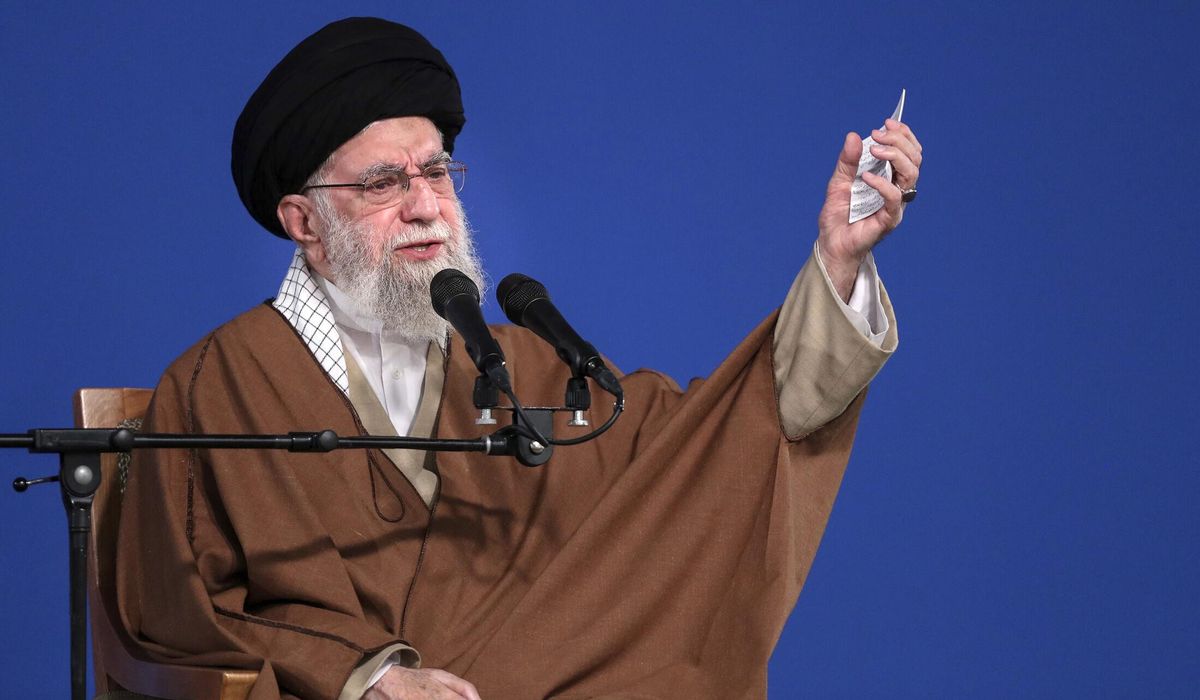


Iran has presented a major foreign policy challenge for the United States, under Republican and Democratic administrations, since the 1979 revolution that overthrew the U.S.-backed Shah of Iran and ushered in the Islamic republic.
Tehran’s backing of armed factions and terrorist organizations, along with its partnerships with Russia and China, have been of particular concern to Washington.
Still, after nearly 50 years in power, it was Iran’s long-standing atomic ambitions that triggered a devastating war with Israel and led to the crippling U.S. bombings of Tehran’s nuclear infrastructure Saturday.
“I have been shocked by the ineptness, incompetence and downright stupidity of the Iranian government in managing its relationship with the rest of the world,” Middle East expert Danielle Pletka said Sunday in a post for the American Enterprise Institute think tank.
Before President Trump’s ceasefire announcement Monday, Israeli forces struck critical government institutions in Iran, including the headquarters for the Basij. This paramilitary organization suppresses internal dissent and disseminates loyalist propaganda with the powerful Islamic Revolutionary Guard Corps.
“The Islamic republic has been made to understand how conventionally outgunned it is. While you could say they are down, they are definitely not out,” said Behnam Ben Taleblu, senior director of the Iran Program at the Foundation for Defense of Democracies think tank. “They politically seem to understand that there is a pathway to de-escalation that allows the regime to stay intact — and the No. 1 priority of this regime is survival.”
Although several organizations retain some measure of authority in Iran, the true power rests with the supreme leader, Ayatollah Ali Khamenei, who is only the second person to have held the position for a lifetime.
He is the head of state and the country’s highest political and religious authority, even above Iran’s president. The military and key government organizations, such as the Guardian Council, are subject to the supreme leader.
“These different organizations reflect his own power because they are all carrying out his will,” Mr. Taleblu said. “He is the apparatus of government, and everything flows downward.”
The cleric and political leader has reportedly been in a secure bunker since June 12, when Israel conducted the first airstrikes in its campaign targeting Iran’s nuclear program and military leadership. Mr. Taleblu said it’s unclear who is running Iran’s government today.
“There are all these reports that say the government is not using electronic communications and they’re discouraging the use of cellphones. His contact with other government officials is not as direct or continuous as it used to be when things were ‘normal’ in the Islamic republic,” he said. “No one has experienced such a thing since the end of the Iran-Iraq War in 1988. The whole foreign security policy of the Islamic republic was geared toward avoiding such a thing.”
Mr. Taleblu noted that the ayatollah, who has been the supreme leader in Iran since 1989, has outlasted multiple U.S. administrations.
“But he’s 86, and he’s a man who could miscalculate,” he said. “He’s got an inclination for preservation, and that inclination may have bailed him out here.”
Mr. Taleblu discounted news reports that the Iranian leader has chosen his successor from a list of three candidates in the event he is killed in the fighting.
“I think ultimately Khamenei is looking to have his son or someone from the hard-line security establishment take over,” he said. “He’s probably found some old guy who could play an interim or bridging role in the situation should he die.”
Besides the supreme leader, the IRGC is the most powerful institution in Iran. However, its leadership ranks have been decimated by the Israeli airstrikes.
“[The IRGC] was probably scrambling all throughout the week to try to launch missiles at Israel,” Mr. Taleblu said. “They’re doing all these things to land a blow, but really to be seen as landing a blow. The IRGC is off balance.”
The U.S. bomber strikes on Iran have resulted in calls for impeachment from congressional Democrats and grumbling from some Republicans, but Mr. Taleblu said supporting the Iranian people against the mullahs in Tehran would allow the U.S. to focus its attention on other challenges, such as communist China.
“In the Islamic Republic of Iran, you have a fundamentally anti-American Islamist authoritarian elite, but within Iranian society, you have fundamentally the most pro-American population in the Middle East,” he said. “How to flip the two, how to empower the Iranian people, actually opens the door for doing what the American people have wanted to do.”
• Mike Glenn can be reached at mglenn@washingtontimes.com.
